
Politics
08:27, 11-Oct-2017
Spain gives Catalan leader 8 days to drop independence
CGTN
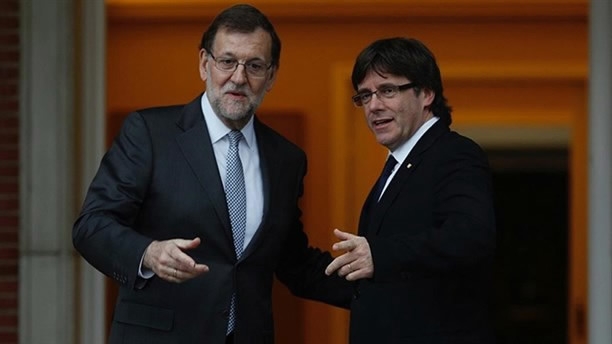
Spanish Prime Minister Mariano Rajoy on Wednesday gave the Catalan government eight days to drop an independence bid, failing which he would suspend the Catalonia’s political autonomy and rule the region directly.
The Spanish government has given Catalan leader Carles Puigdemont five days to say whether he declared independence or not. If Puigdemont was to confirm he did declare independence, he would be given an additional three days to rectify. Failing this, Article 155 of the constitution, which allows the central government to suspend a region's political autonomy and rule it directly, would be triggered.
Puigdemont said in an interview with CNN that it would be "unjustifiable and an error" for the Spanish government to implement Article 155.
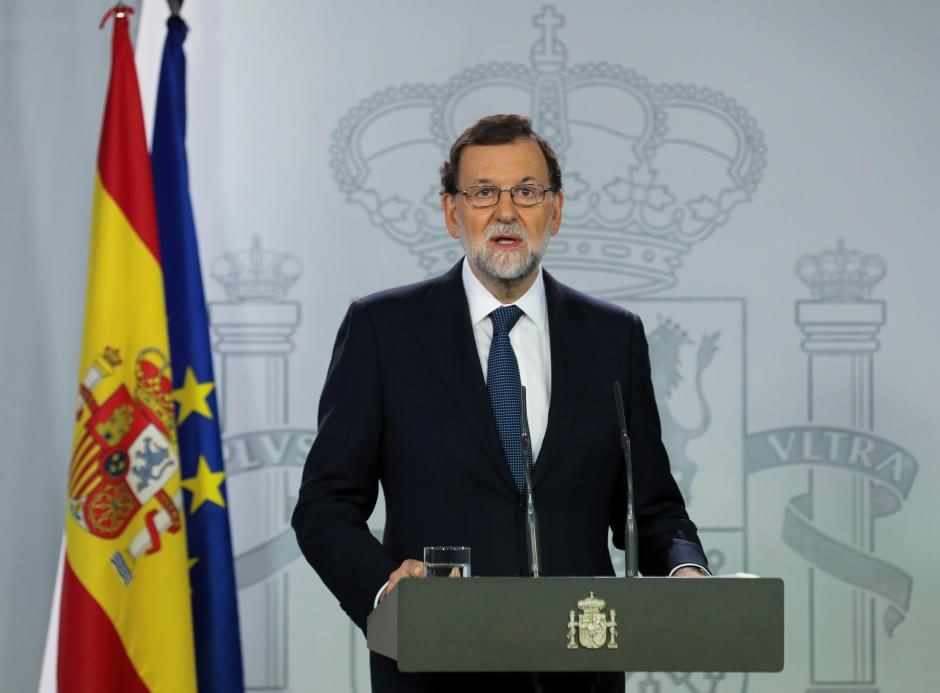
Spanish Prime Minister Mariano Rajoy delivers a statement at the Moncloa Palace in Madrid, Spain, Oct. 11, 2017. /Reuters Photo
Spanish Prime Minister Mariano Rajoy delivers a statement at the Moncloa Palace in Madrid, Spain, Oct. 11, 2017. /Reuters Photo
Rajoy on Wednesday sent Catalan leader Carles Puigdemont a formal petition for him to "confirm" whether or not the Catalan region's parliament had declared independence from Spain in its session held on Tuesday night.
The Spanish PM accuses Puigdemont of causing "deliberate confusion" during Tuesday's speech. The Catalan leader said he wanted to "follow people's will for Catalonia to become an independent state," but proposed suspending the effect of the independence declaration to allow for "dialogue" with Madrid.
Catalan leaders signed a declaration of independence from Spain on Tuesday but the move will not be implemented for a few weeks to open a process of dialogue.
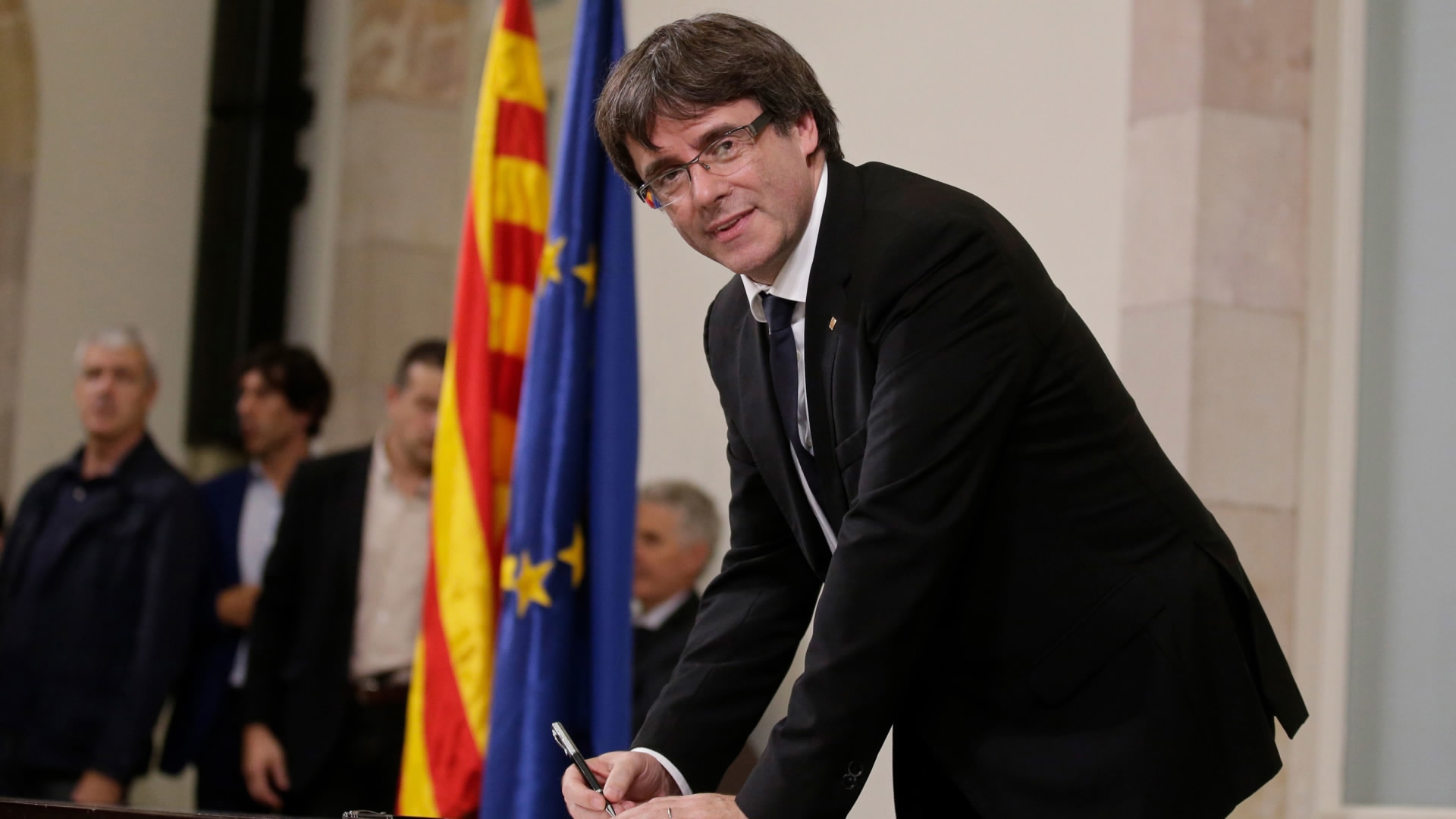
Puigdemont made the statement in the Catalan parliament on Tuesday where he appeared to assess the political situation in Catalonia after a referendum was held on October 1.
"Catalonia has won the right to become an independent state," he said, calling on the Spanish government to accept mediation.
Puigdemont emphasized during his speech that the Catalan issue was a European issue, highlighting the need to reduce tension and saying that the only way to progress was through peace and democracy.
The referendum was declared illegal by Spain's Constitutional Court.
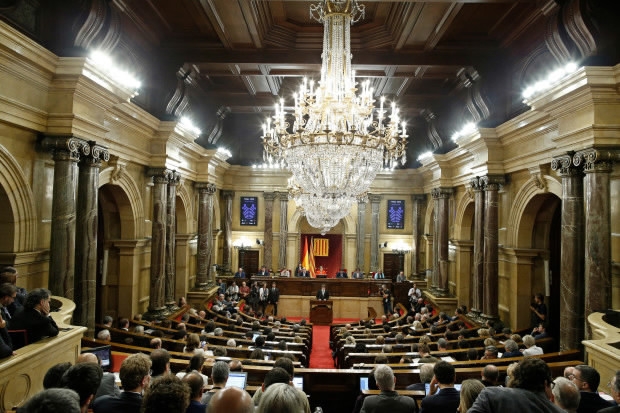
Catalan regional President Carles Puigdemont delivers his opening speech at the parliament in Barcelona, Oct. 10, 2017. /AP Photo
Catalan regional President Carles Puigdemont delivers his opening speech at the parliament in Barcelona, Oct. 10, 2017. /AP Photo
Reactions from the people
Carles Puigdemont arrived at the Catalan parliament on Tuesday a hero to those backing independence. As many as 20,000 waited outside, with many expecting nothing less than a clean break from Spain.
Spirits remained high despite an hour’s delay, but then the actual moment came. It was not until the very end that the key lines were spoken.
"The government and myself, we propose that Parliament suspend the effects of a declaration of independence, so that in the next few weeks we start a dialogue, without which it is not possible to get to a concerted solution," the Puigdemont said.
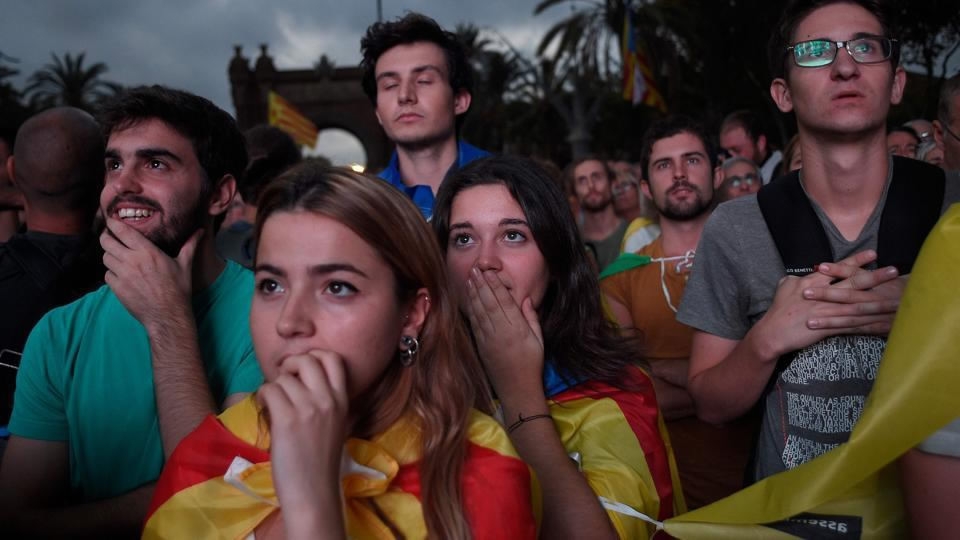
Supporters of independence for Catalonia listen to Catalan president Carles Puigdemont's speech broadcasted on a television screen at the Arc de Triomf (Triumphal Arch) in Barcelona, Oct. 10, 2017. /AFP Photo
Supporters of independence for Catalonia listen to Catalan president Carles Puigdemont's speech broadcasted on a television screen at the Arc de Triomf (Triumphal Arch) in Barcelona, Oct. 10, 2017. /AFP Photo
Sighs of relief emanated in some parts of Barcelona, but outside the parliament building, there was frustration and no cheers.
"I came expecting a unilateral Declaration of Independence, now they've said they're going to suspend that until they talk," a spectator said. "I guess I don't know what they know. I still think we’ll get an independent Catalan state."
"We were expecting a unilateral declaration," another said. "But we understand it can’t be that easy, and that it has to be a step by step process."
"The only ones who don't converse, and I have to say this every time, is the Spanish government," pro-independence activist Jordi Sanchez said. "They refuse to converse and they refuse to listen to the majority of the country."
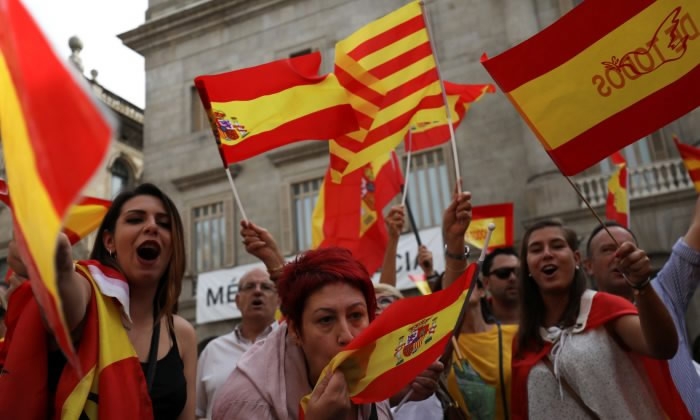
A woman kisses a Spanish flag as protesters hold Spanish and Catalan flags during a demonstration in favor of a unified Spain in Barcelona, Sept. 30, 2017. /Reuters Photo
A woman kisses a Spanish flag as protesters hold Spanish and Catalan flags during a demonstration in favor of a unified Spain in Barcelona, Sept. 30, 2017. /Reuters Photo
The future of Catalonia
The Spanish prime minister said it was in the hands of the Catalan leader whether or not things would "return to normality," adding that Spanish democracy was facing "one of its most serious threats" in 40 years and that "no responsible government can allow this."
"Any government is obliged to defend the unity of the country," continued Rajoy, who said he was willing to talk, but could not negotiate "about the indivisibility of Spain."
"There is no mediation possible between disobedience and legality," commented Rajoy, who also said he would not oppose a change to the Constitution as supported by Socialist leader Pedro Sanchez, Ciudadanos leader, Albert Rivera and Podemos' Pablo Iglesias, "but only through the mechanisms designed to do so."
"Neither Mr Puigdemont nor anybody else can claim, without coming back to legality and democracy, to impose mediation," according to Soraya Saenz de Santamaria, Spanish Deputy Prime Minister. "Any dialogue between democrats has to take place within the law, respecting the rules of the game and not inventing them in their advantage."
8814km

SITEMAP
Copyright © 2018 CGTN. Beijing ICP prepared NO.16065310-3
Copyright © 2018 CGTN. Beijing ICP prepared NO.16065310-3